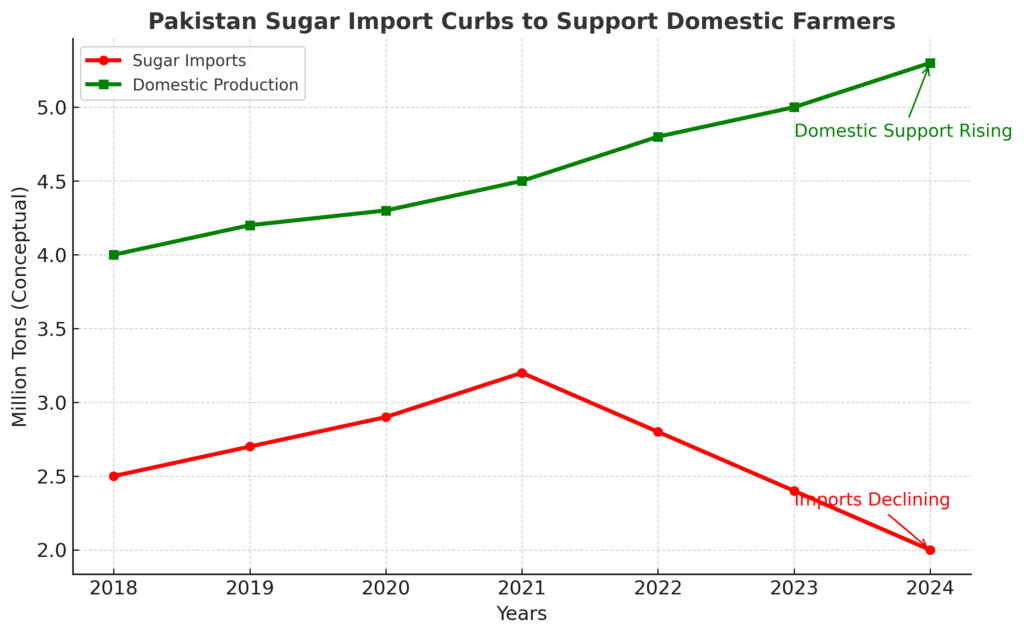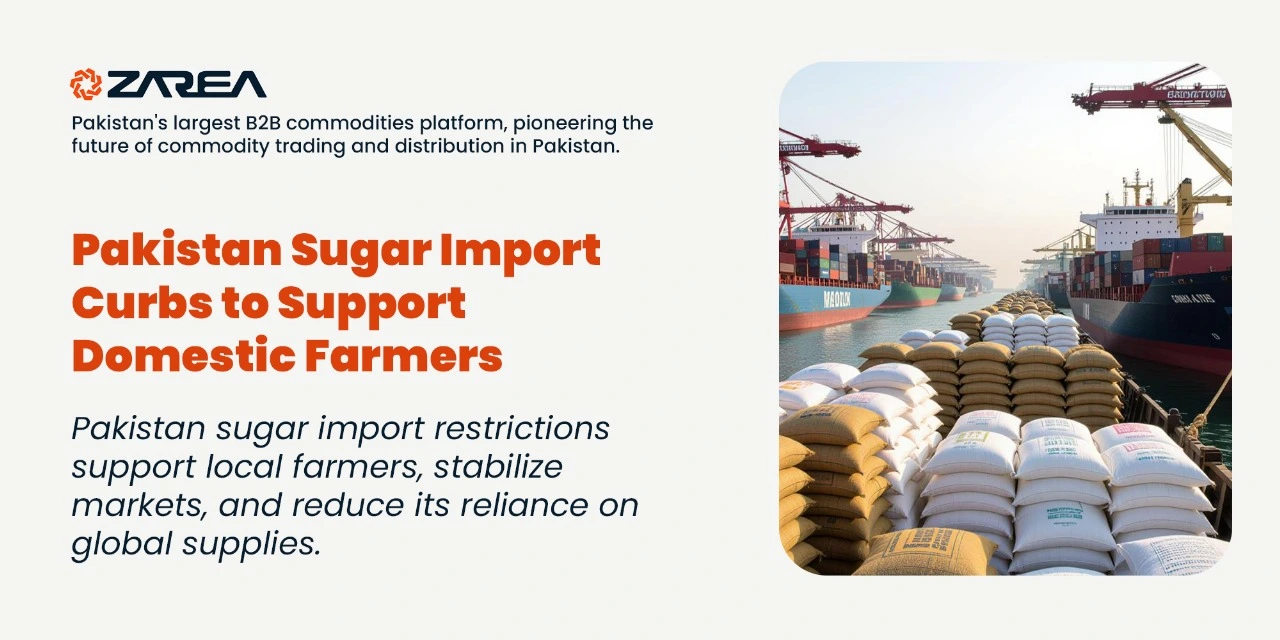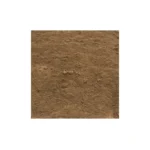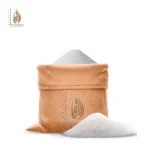Introduction – Sugar Import Pakistan 2025:
The government has taken some steps in the country to limit the sugar import Pakistan 2025 amount. These steps are involved in order to protect indigenous cane producers and maintain market stability. Meanwhile this move is part of a larger plan to lessen reliance on imports and guarantee fair prices for domestic farmers. Moreover, it will especially boost the nation’s agricultural sector in light of volatile global sugar prices. It will help Pakistan to tight international supply chains. This season, we anticipate that Pakistan will produce 5.3 million tonnes of sugar, compared to 5.5 million tonnes consumed. Rumours on the local market, however, indicate that Pakistan may only be able to produce 4.8 million tonnes of white sugar this season.
What Caused the Most Recent Price Increase?
Punjab is a major sugarcane-producing region that accounts for 70% of its production. But unfortunately it is slightly below average this season because of the rainfall in Punjab. After that, the government eliminated subsidies and increased the general sales tax from 8% to 17%. Moreover the price of agricultural inputs (fertiliser, raw materials, seeds, and machinery) has increased.
Farmers are profiting from rumours of low agricultural yields; at the moment, cane being sold to mills for up to 25% more than the State-Advised Price (SAP), which is PKR 192/40 kg.
Protecting Local Farmers:
The flood of cheap imported sugar has long expressed worry to Pakistani sugarcane producers. As a result, it undermined the market for locally produced sugar supplies. In addition to pushing cane procurement prices down, this distorts the market and deters farmers from growing their operations.
Limiting Pakistan’s sugar imports is intended to:
- Urge millers to give crushing domestic cane top priority.
- Give farmers steady sources of revenue.
- Decrease the local stocks that remain unsold.
These interventions are very essential to continuing rural incomes especially. Because climate unpredictability is susceptible to increasing input costs.

Go to Zarea now! Go through our product listings, buy and save money today! It is the largest commodity marketplace in Pakistan that connects businesses to businesses (B2B). Additionally, it sets the standard for the nation’s future trade and product distribution.
Market Stability and Price Control:
Reducing sugar imports from Pakistan is also meant to assist balance domestic market supply and demand. Because imported sugar frequently enters the market at a cheaper price, unfair competition and retail rate instability result.
- For Consumers: The government has the difficulty of preventing abrupt increases in household consumption prices as a result of supporting farmers.
- For Industry: Although they may experience short-term cost challenges, food and beverage producers—who are significant users of refined sugar—should eventually adapt to more stable supply chains.
This regulated strategy is similar to those in other Asian nations where authorities step in to protect regional producers while preserving affordability for consumers.
Sugar Import Pakistan 2025 and Regional Context:
The action is taken as a number of Asian nations are reevaluating their approaches to importing sugar. To help local cane growers, Indonesia, one of the biggest importers of sugar worldwide, has implemented temporary limitations. A similar balancing act between commitments to foreign commerce and the viability of home agriculture is reflected in Pakistan’s decision.
Pakistan’s import restrictions would not have a major impact on world sugar prices at all. This is because nations like Thailand and India control a large portion of the market. But they might support a regional trend that has a higher priority placed on food security. On the other hand, it aids local farmers’ welfare than low-cost imports.
Long-Term Considerations:
While lowering sugar imports from Pakistan can help local farmers in the short run, there are still longer-term issues to deal with:
- Productivity Gaps: Pakistan has to invest in research, mechanisation, and effective irrigation because its cane yields per hectare are lower than the world average.
- Refining Capacity: Maintaining supply will depend on how well mills run and how fast they can process local cane.
- Trade Balance: Import restrictions preserve home markets, but if exports of other agri-commodities do not increase correspondingly, they may put more strain on foreign reserves.
Final Thoughts:
The government’s decision to restrict Pakistan’s sugar imports is an important step in fortifying the nation’s agricultural foundation. Pakistan wants to build a more robust and independent sugar sector by helping local farmers and making sure their produce is used by the local market.
To provide long-term benefits for farmers and consumers, structural changes in productivity, supply chain effectiveness, and market regulation are necessary for long-term stability.
































